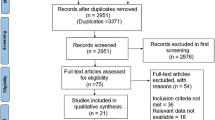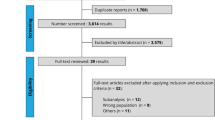Abstract
Purpose
This study aimed to examine the cost-effectiveness of CYP2C19 loss-of-function and gain-of-function allele guided (LOF/GOF-guided) antiplatelet therapy in patients with acute coronary syndrome (ACS) undergoing percutaneous coronary intervention (PCI).
Methods
A life-long decision-analytic model was designed to simulate outcomes of three strategies: universal clopidogrel (75 mg daily), universal alternative P2Y12 inhibitor (prasugrel 10 mg daily or ticagrelor 90 mg twice daily), and LOF/GOF-guided therapy (LOF/GOF allele carriers receiving alternative P2Y12 inhibitor, wild-type patients receiving clopidogrel). Model outcomes included clinical event rates, quality-adjusted life-years (QALYs) gained and direct medical costs from perspective of US healthcare provider.
Results
Base-case analysis found nonfatal myocardial infarction (5.62%) and stent thrombosis (1.2%) to be the lowest in universal alternative P2Y12 inhibitor arm, whereas nonfatal stroke (0.72%), cardiovascular death (2.42%), and major bleeding (2.73%) were lowest in LOF/GOF-guided group. LOF/GOF-guided arm gained the highest QALYs (7.5301 QALYs) at lowest life-long cost (USD 76,450). One-way sensitivity analysis showed base-case results were subject to the hazard ratio of cardiovascular death in carriers versus non-carriers of LOF allele and hazard ratio of cardiovascular death in non-carriers of LOF allele versus general patients. In probabilistic sensitivity analysis of 10,000 Monte Carlo simulations, LOF/GOF-guided therapy, universal alternative P2Y12 inhibitor, and universal clopidogrel were the preferred strategy (willingness-to-pay threshold = 50,000 USD/QALY) in 99.07%, 0.04%, and 0.89% of time, respectively.
Conclusions
Using both CYP2C19 GOF and LOF alleles to select antiplatelet therapy appears to be the preferred antiplatelet strategy over universal clopidogrel and universal alternative P2Y12 inhibitor therapy for ACS patients with PCI.





Similar content being viewed by others
References
Anderson JL, Adams CD, Antman EM, et al. 2012 ACCF/AHA focused update incorporated into the ACCF/AHA 2007 guidelines for the management of patients with unstable angina/non-ST-elevation myocardial infarction. J Am Coll Cardiol. 2013;61:e179–347.
O’Gara PT, Kushner FG, Ascheim DD, et al. 2013 ACCF/AHA guideline for the management of ST-elevation myocardial infarction: a report of the American College of Cardiology Foundation/American Heart Association task force on practice guidelines. J Am Coll Cardiol. 2013;61:e78–140.
Franchi F, Angiolillo DJ. Novel antiplatelet agents in acute coronary syndrome. Nat Rev Cardiol. 2015;12:30–47.
Tantry US, Gesheff M, Liu F, Bliden KP, Gurbel PA. Resistance to antiplatelet drugs: what progress has been made? Expert Opin Pharmacother. 2014;15:2553–64.
Mega JL, Simon T. Pharmacology of antithrombotic drugs: an assessment of oral antiplatelet and anticoagulant treatments. Lancet. 2015;386:281–91.
Zabalza M, Subirana I, Sala J, et al. Meta-analyses of the association between cytochrome CYP2C19 loss- and gain-of-function polymorphisms and cardiovascular outcomes in patients with coronary artery disease treated with clopidogrel. Heart. 2012;98:100–8.
Scott SA, Sangkuhl K, Gardner EE, et al. Clinical pharmacogenetics implementation consortium guidelines for cytochrome P450-2C19 (CYP2C19) genotype and clopidogrel therapy. Clin Pharmacol Ther. 2011;90:328–32.
Mega JL, Simon T, Collet JP, et al. Reduced-function CYP2C19 genotype and risk of adverse clinical outcomes among patients treated with clopidogrel predominantly for PCI: a meta-analysis. JAMA. 2010;304:1821–30.
Wiviott SD, Braunwald E, McCabe CH, et al. Prasugrel versus clopidogrel in patients with acute coronary syndromes. N Engl J Med. 2007;357:2001–15.
Wallentin L, Becker RC, Budaj A, et al. Ticagrelor versus clopidogrel in patients with acute coronary syndromes. N Engl J Med. 2009;361:1045–57.
U.S. Food & Drug Administration. FDA Drug Safety Communication: Reduced effectiveness of Plavix (clopidogrel) in patients who are poor metabolizers of the drug. 2016. http://www.fda.gov/drugs/drugsafety/postmarketdrugsafetyinformationforpatientsandproviders/ucm203888.htm. Accessed 18 Mar 2016.
Jiang MH, You JH. Review of pharmacoeconomic evaluation of genotype-guided antiplatelet therapy. Expert Opin Pharmacother. 2015;16:771–9.
Jiang MH, You JH. CYP2C19 genotype plus platelet reactivity-guided antiplatelet therapy in acute coronary syndrome patients: a decision analysis. Pharmacogenet Genomics. 2015;25:609–17.
Jiang MH, You JH. Cost-effectiveness analysis of personalized antiplatelet therapy in patients with acute coronary syndrome. Pharmacogenomics. 2016;17:701–13.
Eikelboom JW, Mehta SR, Anand SS, Xie CC, Fox KAA, Yusuf S. Adverse impact of bleeding on prognosis in patients with acute coronary syndromes. Circulation. 2006;114:774–82.
Main C, Palmer S, Griffin S, et al. Clopidogrel used in combination with aspirin compared with aspirin alone in the treatment of non-ST-segment-elevation acute coronary syndromes: a systematic review and economic evaluation. Health Technol Assess. 2004;8:1–156.
Mega JL, Close SL, Wiviott SD, et al. Cytochrome P-450 polymorphisms and response to clopidogrel. N Engl J Med. 2009;360:354–62.
Wiviott SD, Antman EM, Gibson CM, et al. Evaluation of prasugrel compared with clopidogrel in patients with acute coronary syndromes: design and rationale for the TRial to assess improvement in therapeutic outcomes by optimizing platelet inhibition with prasugrel thrombolysis in myocardial infarction 38 (TRITON-TIMI 38). Am Heart J. 2006;152:627–35.
Harmszea AM, van Werkum JW, Hackeng CM, et al. The influence of CYP2C19*2 and *17 on on-treatment platelet reactivity and bleeding events in patients undergoing elective coronary stenting. Pharmacogenet Genomics. 2012;2012:169–75.
Tang XF, Fan JY, Meng J, Jin C, Yuan JQ, Yang YJ. Impact of new oral or intravenous P2Y12 inhibitors and clopidogrel on major ischemic and bleeding events in patients with coronary artery disease: a meta-analysis of randomized trials. Atherosclerosis. 2014;233:568–78.
Sullivan PW, Ghushchyan V. Preference-based EQ-5D index scores for chronic conditions in the United States. Med Decis Mak. 2006;26:410–20.
Tsevat J, Goldman L, Soukup JR, et al. Stability of time-tradeoff utilities in survivors of myocardial-infarction. Med Decis Mak. 1993;13:161–5.
Centers for Medicare & Medicaid Services. Details for title: FY 2013 final rule tables. https://www.cms.gov/Medicare/Medicare-Fee-for-Service-Payment/AcuteInpatientPPS/FY-2013-IPPS-Final-Rule-Home-Page-Items/FY2013-Final-Rule-Tables.html. Assessed 27 Feb 2016.
Menzin J, Wygant G, Hauch O, Jackel J, Friedman M. One-year costs of ischemic heart disease among patients with acute coronary syndromes: findings from a multi-employer claims database. Curr Med Res Opin. 2008;24:461–8.
Kazi DS, Garber AM, Shah RU, et al. Cost-effectiveness of genotype-guided and dual antiplatelet therapies in acute coronary syndrome. Ann Intern Med. 2014;160:221–32.
Pharmacy Checker. Compare drug prices among reputable online pharmacies. https://www.pharmacychecker.com. Assessed 7 Jan 2016.
Weinstein MC, Siegel JE, Gold MR, Kamlet MS, Russel LB. Recommendations of the panel on cost-effectiveness in health and medicine. JAMA. 1996;276:1253–8.
Lala A, Berger JS, Sharma G, Hochman JS, Braithwaite RS, Ladapo JA. Genetic testing in patients with acute coronary syndrome undergoing percutaneous coronary intervention: a cost-effectiveness analysis. J Thromb Haemost. 2013;11:81–91.
Reese ES, Mullins CD, Beitelshees AL, Onukwugha E. Cost-effectiveness of cytochrome P450 2C19 genotype screening for selection of antiplatelet therapy with clopidogrel or prasugrel. Pharmacotherapy. 2012;32:323–32.
Crespin DJ, Federspiel JJ, Biddle AK, Jonas DE, Rossi JS. Ticagrelor versus genotype-driven antiplatelet therapy for secondary prevention after acute coronary syndrome: a cost-effectiveness analysis. Value Health. 2011;14:483–91.
Deiman BALM, Tonino PAL, Kouhestani K, et al. Reduced number of cardiovascular events and increased cost-effectiveness by genotype-guided antiplatelet therapy in patients undergoing percutaneous coronary interventions in the Netherlands clinical evidence. Neth Heart J. 2016;24:589–99.
Wiviott SD, Steg PG. Clinical evidence for oral antiplatelet therapy in acute coronary syndromes. Lancet. 2015;386:292–302.
Biondi-Zoccai G, Lotrionte M, Agostoni P, et al. Adjusted indirect comparison meta-analysis of prasugrel versus ticagrelor for patients with acute coronary syndromes. Int J Cardiol. 2011;150:325–31.
ClinicalTrial.gov. A service of the U.S. National Institutes of Health. Tailored Antiplatelet Therapy Following PCI (TAILOR-PCI). 2016. https://clinicaltrials.gov/ct2/show/NCT01742117?term=TAILOR+PCI&rank=1/. Assessed 8 Mar 2016.
Clinical Pharmacogenetics Implementation Consortium. Genes-Drugs. 2016. https://cpicpgx.org/genesdrugs/. Assessed 20 Jan 2016.
Siller-Matula JM, Trenk D, Schror K, et al. How to improve the concept of individualised antiplatelet therapy with P2Y12 receptor inhibitors--is an algorithm the answer? Thromb Haemost. 2015;113:37–52.
Cuisset T, Grosdidier C, Loundou AD, et al. Clinical implications of very low on-treatment platelet reactivity in patients treated with thienopyridine the POBA study (predictor of bleedings with antiplatelet drugs). JACC-Cardiovasc Interv. 2013;6:854–63.
Gurbel PA, Bliden KP, Butler K, et al. Response to ticagrelor in clopidogrel nonresponders and responders and effect of switching therapies the RESPOND study. Circulation. 2010;121:1188–99.
Sardella G, Calcagno S, Mancone M, et al. Pharmacodynamic effect of switching therapy in patients with high on-treatment platelet reactivity and genotype variation with high clopidogrel dose versus prasugrel the RESET GENE trial. Circ Cardiovasc Inter. 2012;5:698–704.
ClinicalTrials.gov. A service of the U.S. National Institutes of Health. Testing Responsiveness to Platelet Inhibition on Chronic Antiplatelet Treatment For Acute Coronary Syndromes Trial (TROPICAL-ACS). 2016. https://clinicaltrials.gov/ct2/show/NCT01959451?term=TROPICAL-ACS&rank=1. Assessed 12 Jul 2016.
Straub N, Beivers A, Lenk E, Aradi D, Sibbing D. A model-based analysis of the clinical and economic impact of personalising P2Y12-receptor inhibition with platelet function testing in acute coronary syndrome patients. Thromb Haemost. 2014;111:290–9.
Coleman CI, Limone BL. Universal versus platelet reactivity assay-driven use of P2Y12 inhibitors in acute coronary syndrome patients: cost-effectiveness analyses for six European perspectives. Thromb Haemost. 2014;111:103–10.
Acknowledgements
This study received no funding or technical support from any agency.
Author’s Contribution
Jiang M and You JHS designed and performed the research, analyzed the data and wrote the manuscript.
Author information
Authors and Affiliations
Corresponding author
Ethics declarations
Conflicts of Interest
The authors declare no conflicts of interest.
Rights and permissions
About this article
Cite this article
Jiang, M., You, J.H.S. CYP2C19 LOF and GOF-Guided Antiplatelet Therapy in Patients with Acute Coronary Syndrome: A Cost-Effectiveness Analysis. Cardiovasc Drugs Ther 31, 39–49 (2017). https://doi.org/10.1007/s10557-016-6705-y
Published:
Issue Date:
DOI: https://doi.org/10.1007/s10557-016-6705-y




